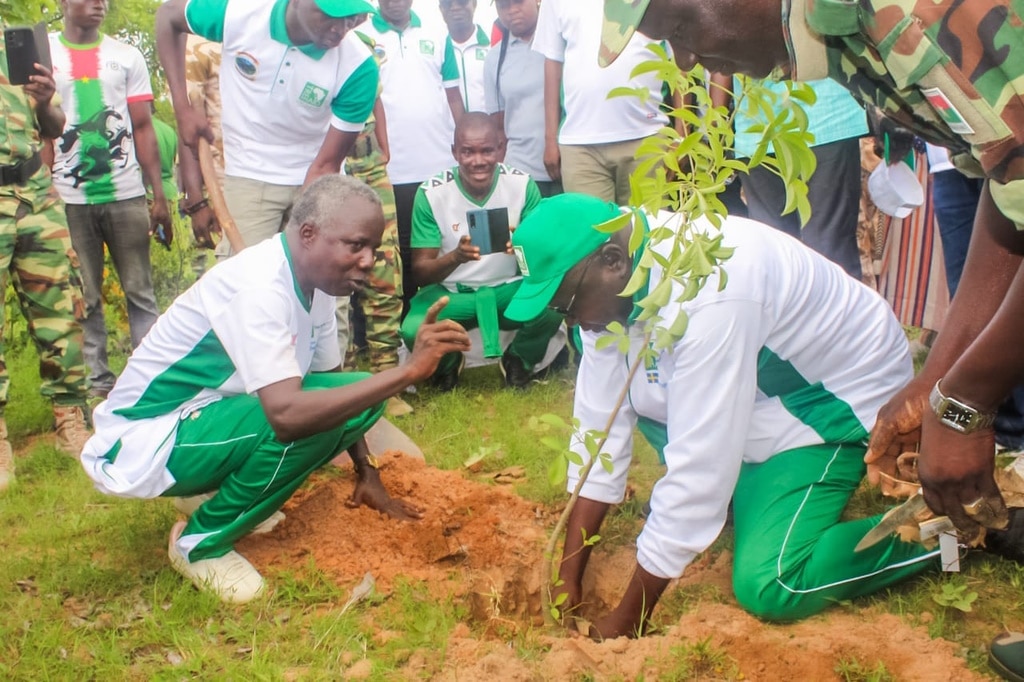Burkina Faso loses more than 105,000 hectares of forest every year, according to the country’s Ministry of the Environment, Water and Sanitation. This justifies the launch of the “1,500,000 utility species seedlings to strengthen community resilience in a context of security crisis and climate change” campaign on 4 August 2023 in Koulpélé, a commune in the province of Bazèga. Tree Aid, a non-governmental organisation (NGO), is carrying out the operation throughout Benin, under the supervision of the Burkina Faso Ministry of the Environment, Water and Sanitation.
Among the tree species planted are the baobab, the shea or butter tree, and the néré, a savannah fruit tree. The British NGO Tree Aid will also be looking after the plants. In addition to restoring the forest cover, the aim is to strengthen the resilience of communities in a context of security crisis and climate change.
Read Also – BURKINA FASO: the network of parliamentarians on the environment plants 300 trees in Lao
The “1,500,000 utility species seedlings to strengthen community resilience in a context of security crisis and climate change” campaign is in line with national initiatives and guidelines for preserving and protecting the environment. The reforestation campaign launched in the wake of the celebration of the fifth National Tree Day on 15 July 2023 is one such initiative. The overall aim is to increase the area of forest in the West African country, estimated at 3.9 million hectares by the Burkina Faso Ministry of the Environment, or around 14% of the national territory.
Tree Aid is also involved in a number of other initiatives in Burkina Faso, including the “Weoog-Paani” local governance and decentralised forest management project, the third phase of the support programme for the development of non-timber forest products (NTFP3) and the Great Green Wall (GGW) initiative in Burkina Faso.
Inès Magoum
